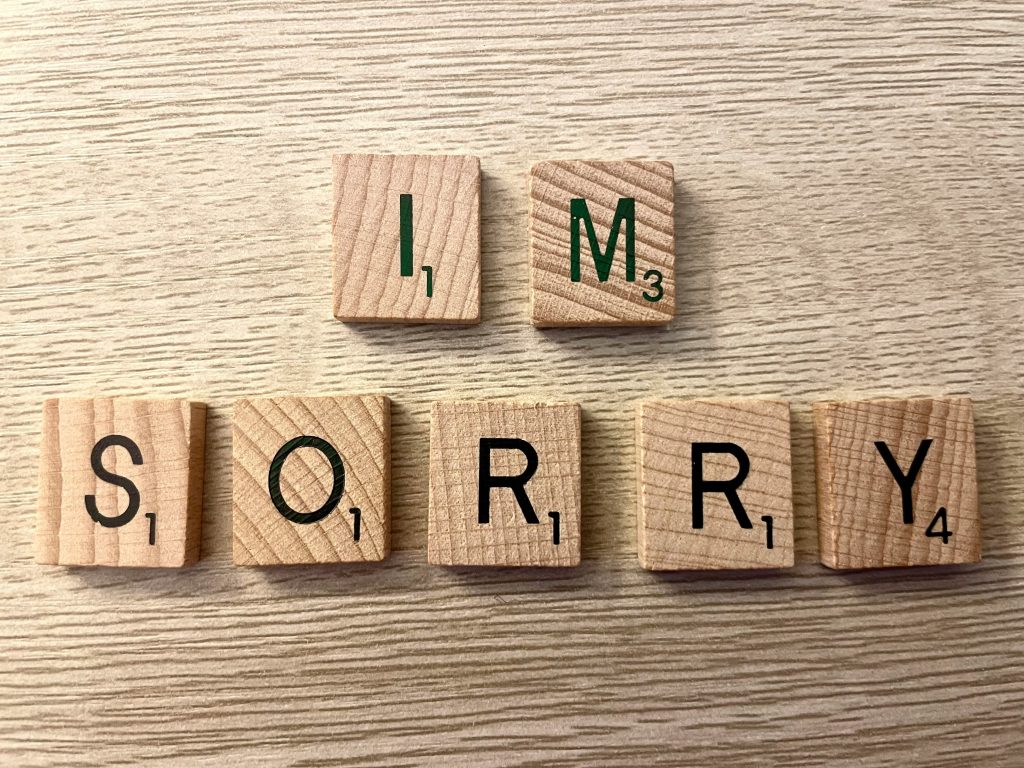We can all picture the politician, broadcaster, or sports icon issuing a public apology for an offensive statement or a found-out betrayal: “I’m sorry for the damage this has caused to….but it wasn’t my intention to hurt them.” It’s much less common to hear a penitent person say simply, “I’m so sorry for the pain I’ve caused you.” No additional “buts”, explanations about intentions, or defensive blame-shifting.
Offering an apology in the latter way is a profound act of humility, one that has the potential to bring healing to the deepest relationship wounds. It brings to the one offering the apology the opportunity to connect with the IMPACT and pain of the one who’s been hurt, rather than the intention. When an emotional wound receives this kind of attention, healing can be deep, long-lasting, and secure.
To offer a healing apology, the hurt of the other must be empathized with, truly understood, even physically felt by the one who created the hurt. Our voice must convey our sadness at wounding an important person. This act of love is quite difficult, as we typically can’t sit long with knowing that we have injured another’s heart. The required vulnerability, however, is magnetic in the potential reconnection of two humans.
On the other hand, several blocks to sincere, felt apologies are much more common. We often want to convey our motivations for the injury, or the unfairness our body feels when we are the only one offering an apology. Things need to feel fair, and we offer our defensive lists of instances when the same was done to us. You can’t accuse someone and expect them to hear your apology in the same breath.
Or, an indirect blame: “I’m sorry you feel that way.” “I’m sorry IT offended you.” These are often worse than any apology, as they indicate that the other person shouldn’t receive the impact they did. Only a direct access to the heart will do—“I am so sorry I hurt you in this way.”
We may feel that an apology is simply necessary to move things along, not to create bonded hearts. Somewhat like our children, who we coerce to say, “I’M SORRY!”, anything that sounds like “Fine. I’m sorry” will never have the soothing impact that can change the relationship dynamic.
We qualify our apology with words such as “not my intention”, “no offense, but”, or just simply “I’m sorry. But….” When we addend our apologies with these types of caveats, we immediately cancel out any good that our admission may have been able to provide. While it is extremely hard to sit in the space of apology without offering any explanation or excuse, this is necessary for healing and forgiveness to begin.
And sometimes, we even disappear into our own shame and guilt while apologizing to another, which has the end result of the person having to take care of us. This type of conversation ends prematurely with the wrong person providing the empathic response.
While there are many other scenarios I may not have addressed here, If you would like to see a change in your relationship dynamics, try removing some of the blocks above, and perhaps you’ll notice some great progress!
If you need more guidance on good apologies, I recommend this book: Harriet Lerner’s Why Won’t You Apologize? : Healing Big Betrayals and Everyday Hurts.

